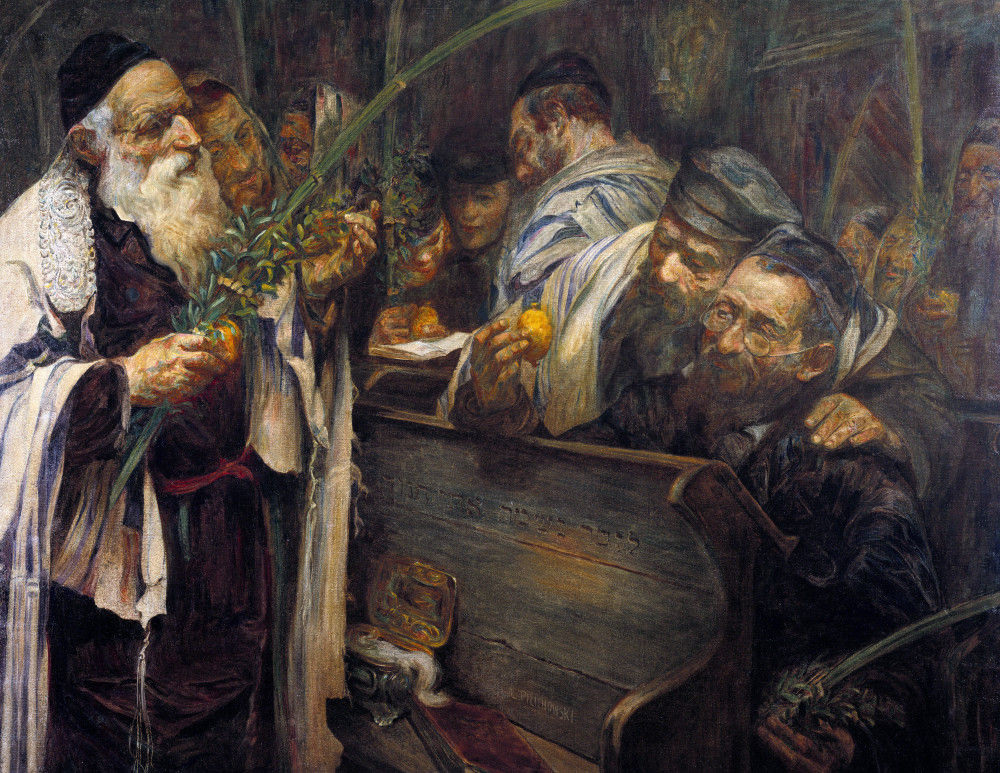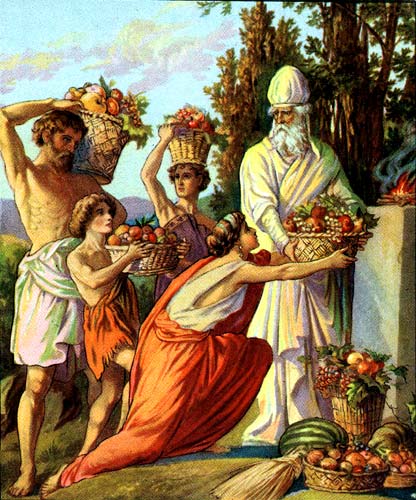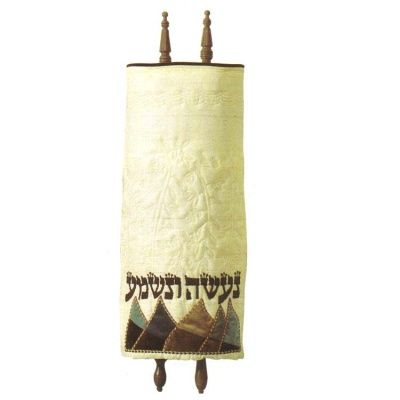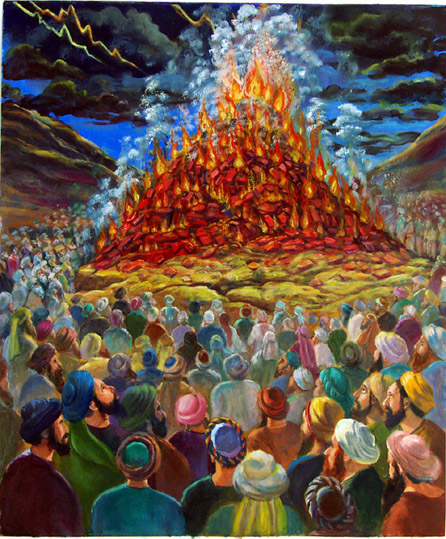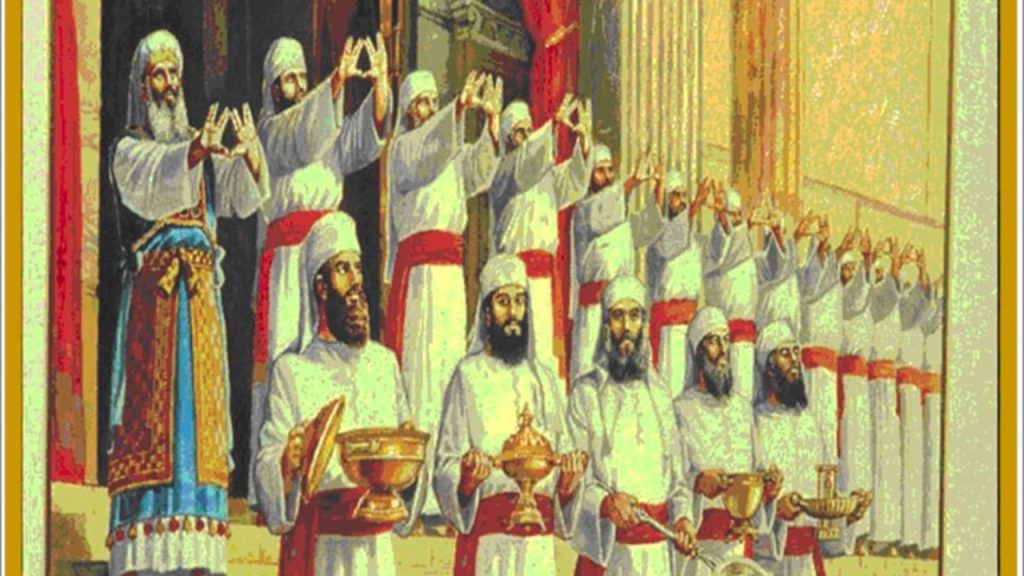Deprecated: Creation of dynamic property WP_Post::$db_id is deprecated in
/home2/yedidyah2018/public_html/wp-includes/nav-menu.php on line
813
Deprecated: Creation of dynamic property WP_Post::$menu_item_parent is deprecated in
/home2/yedidyah2018/public_html/wp-includes/nav-menu.php on line
814
Deprecated: Creation of dynamic property WP_Post::$object_id is deprecated in
/home2/yedidyah2018/public_html/wp-includes/nav-menu.php on line
815
Deprecated: Creation of dynamic property WP_Post::$object is deprecated in
/home2/yedidyah2018/public_html/wp-includes/nav-menu.php on line
816
Deprecated: Creation of dynamic property WP_Post::$type is deprecated in
/home2/yedidyah2018/public_html/wp-includes/nav-menu.php on line
817
Deprecated: Creation of dynamic property WP_Post::$type_label is deprecated in
/home2/yedidyah2018/public_html/wp-includes/nav-menu.php on line
902
Deprecated: Creation of dynamic property WP_Post::$title is deprecated in
/home2/yedidyah2018/public_html/wp-includes/nav-menu.php on line
903
Deprecated: Creation of dynamic property WP_Post::$url is deprecated in
/home2/yedidyah2018/public_html/wp-includes/nav-menu.php on line
904
Deprecated: Creation of dynamic property WP_Post::$target is deprecated in
/home2/yedidyah2018/public_html/wp-includes/nav-menu.php on line
907
Deprecated: Creation of dynamic property WP_Post::$attr_title is deprecated in
/home2/yedidyah2018/public_html/wp-includes/nav-menu.php on line
916
Deprecated: Creation of dynamic property WP_Post::$description is deprecated in
/home2/yedidyah2018/public_html/wp-includes/nav-menu.php on line
926
Deprecated: Creation of dynamic property WP_Post::$classes is deprecated in
/home2/yedidyah2018/public_html/wp-includes/nav-menu.php on line
929
Deprecated: Creation of dynamic property WP_Post::$xfn is deprecated in
/home2/yedidyah2018/public_html/wp-includes/nav-menu.php on line
930
Deprecated: Creation of dynamic property WP_Post::$db_id is deprecated in
/home2/yedidyah2018/public_html/wp-includes/nav-menu.php on line
813
Deprecated: Creation of dynamic property WP_Post::$menu_item_parent is deprecated in
/home2/yedidyah2018/public_html/wp-includes/nav-menu.php on line
814
Deprecated: Creation of dynamic property WP_Post::$object_id is deprecated in
/home2/yedidyah2018/public_html/wp-includes/nav-menu.php on line
815
Deprecated: Creation of dynamic property WP_Post::$object is deprecated in
/home2/yedidyah2018/public_html/wp-includes/nav-menu.php on line
816
Deprecated: Creation of dynamic property WP_Post::$type is deprecated in
/home2/yedidyah2018/public_html/wp-includes/nav-menu.php on line
817
Deprecated: Creation of dynamic property WP_Post::$type_label is deprecated in
/home2/yedidyah2018/public_html/wp-includes/nav-menu.php on line
822
Deprecated: Creation of dynamic property WP_Post::$url is deprecated in
/home2/yedidyah2018/public_html/wp-includes/nav-menu.php on line
843
Deprecated: Creation of dynamic property WP_Post::$title is deprecated in
/home2/yedidyah2018/public_html/wp-includes/nav-menu.php on line
857
Deprecated: Creation of dynamic property WP_Post::$target is deprecated in
/home2/yedidyah2018/public_html/wp-includes/nav-menu.php on line
907
Deprecated: Creation of dynamic property WP_Post::$attr_title is deprecated in
/home2/yedidyah2018/public_html/wp-includes/nav-menu.php on line
916
Deprecated: Creation of dynamic property WP_Post::$description is deprecated in
/home2/yedidyah2018/public_html/wp-includes/nav-menu.php on line
926
Deprecated: Creation of dynamic property WP_Post::$classes is deprecated in
/home2/yedidyah2018/public_html/wp-includes/nav-menu.php on line
929
Deprecated: Creation of dynamic property WP_Post::$xfn is deprecated in
/home2/yedidyah2018/public_html/wp-includes/nav-menu.php on line
930
Deprecated: Creation of dynamic property WP_Post::$db_id is deprecated in
/home2/yedidyah2018/public_html/wp-includes/nav-menu.php on line
813
Deprecated: Creation of dynamic property WP_Post::$menu_item_parent is deprecated in
/home2/yedidyah2018/public_html/wp-includes/nav-menu.php on line
814
Deprecated: Creation of dynamic property WP_Post::$object_id is deprecated in
/home2/yedidyah2018/public_html/wp-includes/nav-menu.php on line
815
Deprecated: Creation of dynamic property WP_Post::$object is deprecated in
/home2/yedidyah2018/public_html/wp-includes/nav-menu.php on line
816
Deprecated: Creation of dynamic property WP_Post::$type is deprecated in
/home2/yedidyah2018/public_html/wp-includes/nav-menu.php on line
817
Deprecated: Creation of dynamic property WP_Post::$type_label is deprecated in
/home2/yedidyah2018/public_html/wp-includes/nav-menu.php on line
822
Deprecated: Creation of dynamic property WP_Post::$url is deprecated in
/home2/yedidyah2018/public_html/wp-includes/nav-menu.php on line
843
Deprecated: Creation of dynamic property WP_Post::$title is deprecated in
/home2/yedidyah2018/public_html/wp-includes/nav-menu.php on line
857
Deprecated: Creation of dynamic property WP_Post::$target is deprecated in
/home2/yedidyah2018/public_html/wp-includes/nav-menu.php on line
907
Deprecated: Creation of dynamic property WP_Post::$attr_title is deprecated in
/home2/yedidyah2018/public_html/wp-includes/nav-menu.php on line
916
Deprecated: Creation of dynamic property WP_Post::$description is deprecated in
/home2/yedidyah2018/public_html/wp-includes/nav-menu.php on line
926
Deprecated: Creation of dynamic property WP_Post::$classes is deprecated in
/home2/yedidyah2018/public_html/wp-includes/nav-menu.php on line
929
Deprecated: Creation of dynamic property WP_Post::$xfn is deprecated in
/home2/yedidyah2018/public_html/wp-includes/nav-menu.php on line
930
Deprecated: Creation of dynamic property WP_Post::$db_id is deprecated in
/home2/yedidyah2018/public_html/wp-includes/nav-menu.php on line
813
Deprecated: Creation of dynamic property WP_Post::$menu_item_parent is deprecated in
/home2/yedidyah2018/public_html/wp-includes/nav-menu.php on line
814
Deprecated: Creation of dynamic property WP_Post::$object_id is deprecated in
/home2/yedidyah2018/public_html/wp-includes/nav-menu.php on line
815
Deprecated: Creation of dynamic property WP_Post::$object is deprecated in
/home2/yedidyah2018/public_html/wp-includes/nav-menu.php on line
816
Deprecated: Creation of dynamic property WP_Post::$type is deprecated in
/home2/yedidyah2018/public_html/wp-includes/nav-menu.php on line
817
Deprecated: Creation of dynamic property WP_Post::$type_label is deprecated in
/home2/yedidyah2018/public_html/wp-includes/nav-menu.php on line
822
Deprecated: Creation of dynamic property WP_Post::$url is deprecated in
/home2/yedidyah2018/public_html/wp-includes/nav-menu.php on line
843
Deprecated: Creation of dynamic property WP_Post::$title is deprecated in
/home2/yedidyah2018/public_html/wp-includes/nav-menu.php on line
857
Deprecated: Creation of dynamic property WP_Post::$target is deprecated in
/home2/yedidyah2018/public_html/wp-includes/nav-menu.php on line
907
Deprecated: Creation of dynamic property WP_Post::$attr_title is deprecated in
/home2/yedidyah2018/public_html/wp-includes/nav-menu.php on line
916
Deprecated: Creation of dynamic property WP_Post::$description is deprecated in
/home2/yedidyah2018/public_html/wp-includes/nav-menu.php on line
926
Deprecated: Creation of dynamic property WP_Post::$classes is deprecated in
/home2/yedidyah2018/public_html/wp-includes/nav-menu.php on line
929
Deprecated: Creation of dynamic property WP_Post::$xfn is deprecated in
/home2/yedidyah2018/public_html/wp-includes/nav-menu.php on line
930
Deprecated: Creation of dynamic property WP_Post::$db_id is deprecated in
/home2/yedidyah2018/public_html/wp-includes/nav-menu.php on line
813
Deprecated: Creation of dynamic property WP_Post::$menu_item_parent is deprecated in
/home2/yedidyah2018/public_html/wp-includes/nav-menu.php on line
814
Deprecated: Creation of dynamic property WP_Post::$object_id is deprecated in
/home2/yedidyah2018/public_html/wp-includes/nav-menu.php on line
815
Deprecated: Creation of dynamic property WP_Post::$object is deprecated in
/home2/yedidyah2018/public_html/wp-includes/nav-menu.php on line
816
Deprecated: Creation of dynamic property WP_Post::$type is deprecated in
/home2/yedidyah2018/public_html/wp-includes/nav-menu.php on line
817
Deprecated: Creation of dynamic property WP_Post::$type_label is deprecated in
/home2/yedidyah2018/public_html/wp-includes/nav-menu.php on line
822
Deprecated: Creation of dynamic property WP_Post::$url is deprecated in
/home2/yedidyah2018/public_html/wp-includes/nav-menu.php on line
843
Deprecated: Creation of dynamic property WP_Post::$title is deprecated in
/home2/yedidyah2018/public_html/wp-includes/nav-menu.php on line
857
Deprecated: Creation of dynamic property WP_Post::$target is deprecated in
/home2/yedidyah2018/public_html/wp-includes/nav-menu.php on line
907
Deprecated: Creation of dynamic property WP_Post::$attr_title is deprecated in
/home2/yedidyah2018/public_html/wp-includes/nav-menu.php on line
916
Deprecated: Creation of dynamic property WP_Post::$description is deprecated in
/home2/yedidyah2018/public_html/wp-includes/nav-menu.php on line
926
Deprecated: Creation of dynamic property WP_Post::$classes is deprecated in
/home2/yedidyah2018/public_html/wp-includes/nav-menu.php on line
929
Deprecated: Creation of dynamic property WP_Post::$xfn is deprecated in
/home2/yedidyah2018/public_html/wp-includes/nav-menu.php on line
930
Deprecated: Creation of dynamic property WP_Post::$db_id is deprecated in
/home2/yedidyah2018/public_html/wp-includes/nav-menu.php on line
813
Deprecated: Creation of dynamic property WP_Post::$menu_item_parent is deprecated in
/home2/yedidyah2018/public_html/wp-includes/nav-menu.php on line
814
Deprecated: Creation of dynamic property WP_Post::$object_id is deprecated in
/home2/yedidyah2018/public_html/wp-includes/nav-menu.php on line
815
Deprecated: Creation of dynamic property WP_Post::$object is deprecated in
/home2/yedidyah2018/public_html/wp-includes/nav-menu.php on line
816
Deprecated: Creation of dynamic property WP_Post::$type is deprecated in
/home2/yedidyah2018/public_html/wp-includes/nav-menu.php on line
817
Deprecated: Creation of dynamic property WP_Post::$type_label is deprecated in
/home2/yedidyah2018/public_html/wp-includes/nav-menu.php on line
822
Deprecated: Creation of dynamic property WP_Post::$url is deprecated in
/home2/yedidyah2018/public_html/wp-includes/nav-menu.php on line
843
Deprecated: Creation of dynamic property WP_Post::$title is deprecated in
/home2/yedidyah2018/public_html/wp-includes/nav-menu.php on line
857
Deprecated: Creation of dynamic property WP_Post::$target is deprecated in
/home2/yedidyah2018/public_html/wp-includes/nav-menu.php on line
907
Deprecated: Creation of dynamic property WP_Post::$attr_title is deprecated in
/home2/yedidyah2018/public_html/wp-includes/nav-menu.php on line
916
Deprecated: Creation of dynamic property WP_Post::$description is deprecated in
/home2/yedidyah2018/public_html/wp-includes/nav-menu.php on line
926
Deprecated: Creation of dynamic property WP_Post::$classes is deprecated in
/home2/yedidyah2018/public_html/wp-includes/nav-menu.php on line
929
Deprecated: Creation of dynamic property WP_Post::$xfn is deprecated in
/home2/yedidyah2018/public_html/wp-includes/nav-menu.php on line
930
Deprecated: Creation of dynamic property WP_Post::$db_id is deprecated in
/home2/yedidyah2018/public_html/wp-includes/nav-menu.php on line
813
Deprecated: Creation of dynamic property WP_Post::$menu_item_parent is deprecated in
/home2/yedidyah2018/public_html/wp-includes/nav-menu.php on line
814
Deprecated: Creation of dynamic property WP_Post::$object_id is deprecated in
/home2/yedidyah2018/public_html/wp-includes/nav-menu.php on line
815
Deprecated: Creation of dynamic property WP_Post::$object is deprecated in
/home2/yedidyah2018/public_html/wp-includes/nav-menu.php on line
816
Deprecated: Creation of dynamic property WP_Post::$type is deprecated in
/home2/yedidyah2018/public_html/wp-includes/nav-menu.php on line
817
Deprecated: Creation of dynamic property WP_Post::$type_label is deprecated in
/home2/yedidyah2018/public_html/wp-includes/nav-menu.php on line
822
Deprecated: Creation of dynamic property WP_Post::$url is deprecated in
/home2/yedidyah2018/public_html/wp-includes/nav-menu.php on line
843
Deprecated: Creation of dynamic property WP_Post::$title is deprecated in
/home2/yedidyah2018/public_html/wp-includes/nav-menu.php on line
857
Deprecated: Creation of dynamic property WP_Post::$target is deprecated in
/home2/yedidyah2018/public_html/wp-includes/nav-menu.php on line
907
Deprecated: Creation of dynamic property WP_Post::$attr_title is deprecated in
/home2/yedidyah2018/public_html/wp-includes/nav-menu.php on line
916
Deprecated: Creation of dynamic property WP_Post::$description is deprecated in
/home2/yedidyah2018/public_html/wp-includes/nav-menu.php on line
926
Deprecated: Creation of dynamic property WP_Post::$classes is deprecated in
/home2/yedidyah2018/public_html/wp-includes/nav-menu.php on line
929
Deprecated: Creation of dynamic property WP_Post::$xfn is deprecated in
/home2/yedidyah2018/public_html/wp-includes/nav-menu.php on line
930
Deprecated: Creation of dynamic property WP_Post::$db_id is deprecated in
/home2/yedidyah2018/public_html/wp-includes/nav-menu.php on line
813
Deprecated: Creation of dynamic property WP_Post::$menu_item_parent is deprecated in
/home2/yedidyah2018/public_html/wp-includes/nav-menu.php on line
814
Deprecated: Creation of dynamic property WP_Post::$object_id is deprecated in
/home2/yedidyah2018/public_html/wp-includes/nav-menu.php on line
815
Deprecated: Creation of dynamic property WP_Post::$object is deprecated in
/home2/yedidyah2018/public_html/wp-includes/nav-menu.php on line
816
Deprecated: Creation of dynamic property WP_Post::$type is deprecated in
/home2/yedidyah2018/public_html/wp-includes/nav-menu.php on line
817
Deprecated: Creation of dynamic property WP_Post::$type_label is deprecated in
/home2/yedidyah2018/public_html/wp-includes/nav-menu.php on line
822
Deprecated: Creation of dynamic property WP_Post::$url is deprecated in
/home2/yedidyah2018/public_html/wp-includes/nav-menu.php on line
843
Deprecated: Creation of dynamic property WP_Post::$title is deprecated in
/home2/yedidyah2018/public_html/wp-includes/nav-menu.php on line
857
Deprecated: Creation of dynamic property WP_Post::$target is deprecated in
/home2/yedidyah2018/public_html/wp-includes/nav-menu.php on line
907
Deprecated: Creation of dynamic property WP_Post::$attr_title is deprecated in
/home2/yedidyah2018/public_html/wp-includes/nav-menu.php on line
916
Deprecated: Creation of dynamic property WP_Post::$description is deprecated in
/home2/yedidyah2018/public_html/wp-includes/nav-menu.php on line
926
Deprecated: Creation of dynamic property WP_Post::$classes is deprecated in
/home2/yedidyah2018/public_html/wp-includes/nav-menu.php on line
929
Deprecated: Creation of dynamic property WP_Post::$xfn is deprecated in
/home2/yedidyah2018/public_html/wp-includes/nav-menu.php on line
930
Deprecated: Creation of dynamic property WP_Post::$db_id is deprecated in
/home2/yedidyah2018/public_html/wp-includes/nav-menu.php on line
813
Deprecated: Creation of dynamic property WP_Post::$menu_item_parent is deprecated in
/home2/yedidyah2018/public_html/wp-includes/nav-menu.php on line
814
Deprecated: Creation of dynamic property WP_Post::$object_id is deprecated in
/home2/yedidyah2018/public_html/wp-includes/nav-menu.php on line
815
Deprecated: Creation of dynamic property WP_Post::$object is deprecated in
/home2/yedidyah2018/public_html/wp-includes/nav-menu.php on line
816
Deprecated: Creation of dynamic property WP_Post::$type is deprecated in
/home2/yedidyah2018/public_html/wp-includes/nav-menu.php on line
817
Deprecated: Creation of dynamic property WP_Post::$type_label is deprecated in
/home2/yedidyah2018/public_html/wp-includes/nav-menu.php on line
822
Deprecated: Creation of dynamic property WP_Post::$url is deprecated in
/home2/yedidyah2018/public_html/wp-includes/nav-menu.php on line
843
Deprecated: Creation of dynamic property WP_Post::$title is deprecated in
/home2/yedidyah2018/public_html/wp-includes/nav-menu.php on line
857
Deprecated: Creation of dynamic property WP_Post::$target is deprecated in
/home2/yedidyah2018/public_html/wp-includes/nav-menu.php on line
907
Deprecated: Creation of dynamic property WP_Post::$attr_title is deprecated in
/home2/yedidyah2018/public_html/wp-includes/nav-menu.php on line
916
Deprecated: Creation of dynamic property WP_Post::$description is deprecated in
/home2/yedidyah2018/public_html/wp-includes/nav-menu.php on line
926
Deprecated: Creation of dynamic property WP_Post::$classes is deprecated in
/home2/yedidyah2018/public_html/wp-includes/nav-menu.php on line
929
Deprecated: Creation of dynamic property WP_Post::$xfn is deprecated in
/home2/yedidyah2018/public_html/wp-includes/nav-menu.php on line
930
Deprecated: Creation of dynamic property WP_Post::$db_id is deprecated in
/home2/yedidyah2018/public_html/wp-includes/nav-menu.php on line
813
Deprecated: Creation of dynamic property WP_Post::$menu_item_parent is deprecated in
/home2/yedidyah2018/public_html/wp-includes/nav-menu.php on line
814
Deprecated: Creation of dynamic property WP_Post::$object_id is deprecated in
/home2/yedidyah2018/public_html/wp-includes/nav-menu.php on line
815
Deprecated: Creation of dynamic property WP_Post::$object is deprecated in
/home2/yedidyah2018/public_html/wp-includes/nav-menu.php on line
816
Deprecated: Creation of dynamic property WP_Post::$type is deprecated in
/home2/yedidyah2018/public_html/wp-includes/nav-menu.php on line
817
Deprecated: Creation of dynamic property WP_Post::$type_label is deprecated in
/home2/yedidyah2018/public_html/wp-includes/nav-menu.php on line
822
Deprecated: Creation of dynamic property WP_Post::$url is deprecated in
/home2/yedidyah2018/public_html/wp-includes/nav-menu.php on line
843
Deprecated: Creation of dynamic property WP_Post::$title is deprecated in
/home2/yedidyah2018/public_html/wp-includes/nav-menu.php on line
857
Deprecated: Creation of dynamic property WP_Post::$target is deprecated in
/home2/yedidyah2018/public_html/wp-includes/nav-menu.php on line
907
Deprecated: Creation of dynamic property WP_Post::$attr_title is deprecated in
/home2/yedidyah2018/public_html/wp-includes/nav-menu.php on line
916
Deprecated: Creation of dynamic property WP_Post::$description is deprecated in
/home2/yedidyah2018/public_html/wp-includes/nav-menu.php on line
926
Deprecated: Creation of dynamic property WP_Post::$classes is deprecated in
/home2/yedidyah2018/public_html/wp-includes/nav-menu.php on line
929
Deprecated: Creation of dynamic property WP_Post::$xfn is deprecated in
/home2/yedidyah2018/public_html/wp-includes/nav-menu.php on line
930
Deprecated: Creation of dynamic property WP_Post::$db_id is deprecated in
/home2/yedidyah2018/public_html/wp-includes/nav-menu.php on line
813
Deprecated: Creation of dynamic property WP_Post::$menu_item_parent is deprecated in
/home2/yedidyah2018/public_html/wp-includes/nav-menu.php on line
814
Deprecated: Creation of dynamic property WP_Post::$object_id is deprecated in
/home2/yedidyah2018/public_html/wp-includes/nav-menu.php on line
815
Deprecated: Creation of dynamic property WP_Post::$object is deprecated in
/home2/yedidyah2018/public_html/wp-includes/nav-menu.php on line
816
Deprecated: Creation of dynamic property WP_Post::$type is deprecated in
/home2/yedidyah2018/public_html/wp-includes/nav-menu.php on line
817
Deprecated: Creation of dynamic property WP_Post::$type_label is deprecated in
/home2/yedidyah2018/public_html/wp-includes/nav-menu.php on line
822
Deprecated: Creation of dynamic property WP_Post::$url is deprecated in
/home2/yedidyah2018/public_html/wp-includes/nav-menu.php on line
843
Deprecated: Creation of dynamic property WP_Post::$title is deprecated in
/home2/yedidyah2018/public_html/wp-includes/nav-menu.php on line
857
Deprecated: Creation of dynamic property WP_Post::$target is deprecated in
/home2/yedidyah2018/public_html/wp-includes/nav-menu.php on line
907
Deprecated: Creation of dynamic property WP_Post::$attr_title is deprecated in
/home2/yedidyah2018/public_html/wp-includes/nav-menu.php on line
916
Deprecated: Creation of dynamic property WP_Post::$description is deprecated in
/home2/yedidyah2018/public_html/wp-includes/nav-menu.php on line
926
Deprecated: Creation of dynamic property WP_Post::$classes is deprecated in
/home2/yedidyah2018/public_html/wp-includes/nav-menu.php on line
929
Deprecated: Creation of dynamic property WP_Post::$xfn is deprecated in
/home2/yedidyah2018/public_html/wp-includes/nav-menu.php on line
930
Deprecated: Creation of dynamic property WP_Post::$db_id is deprecated in
/home2/yedidyah2018/public_html/wp-includes/nav-menu.php on line
813
Deprecated: Creation of dynamic property WP_Post::$menu_item_parent is deprecated in
/home2/yedidyah2018/public_html/wp-includes/nav-menu.php on line
814
Deprecated: Creation of dynamic property WP_Post::$object_id is deprecated in
/home2/yedidyah2018/public_html/wp-includes/nav-menu.php on line
815
Deprecated: Creation of dynamic property WP_Post::$object is deprecated in
/home2/yedidyah2018/public_html/wp-includes/nav-menu.php on line
816
Deprecated: Creation of dynamic property WP_Post::$type is deprecated in
/home2/yedidyah2018/public_html/wp-includes/nav-menu.php on line
817
Deprecated: Creation of dynamic property WP_Post::$type_label is deprecated in
/home2/yedidyah2018/public_html/wp-includes/nav-menu.php on line
822
Deprecated: Creation of dynamic property WP_Post::$url is deprecated in
/home2/yedidyah2018/public_html/wp-includes/nav-menu.php on line
843
Deprecated: Creation of dynamic property WP_Post::$title is deprecated in
/home2/yedidyah2018/public_html/wp-includes/nav-menu.php on line
857
Deprecated: Creation of dynamic property WP_Post::$target is deprecated in
/home2/yedidyah2018/public_html/wp-includes/nav-menu.php on line
907
Deprecated: Creation of dynamic property WP_Post::$attr_title is deprecated in
/home2/yedidyah2018/public_html/wp-includes/nav-menu.php on line
916
Deprecated: Creation of dynamic property WP_Post::$description is deprecated in
/home2/yedidyah2018/public_html/wp-includes/nav-menu.php on line
926
Deprecated: Creation of dynamic property WP_Post::$classes is deprecated in
/home2/yedidyah2018/public_html/wp-includes/nav-menu.php on line
929
Deprecated: Creation of dynamic property WP_Post::$xfn is deprecated in
/home2/yedidyah2018/public_html/wp-includes/nav-menu.php on line
930
Deprecated: Creation of dynamic property WP_Post::$db_id is deprecated in
/home2/yedidyah2018/public_html/wp-includes/nav-menu.php on line
813
Deprecated: Creation of dynamic property WP_Post::$menu_item_parent is deprecated in
/home2/yedidyah2018/public_html/wp-includes/nav-menu.php on line
814
Deprecated: Creation of dynamic property WP_Post::$object_id is deprecated in
/home2/yedidyah2018/public_html/wp-includes/nav-menu.php on line
815
Deprecated: Creation of dynamic property WP_Post::$object is deprecated in
/home2/yedidyah2018/public_html/wp-includes/nav-menu.php on line
816
Deprecated: Creation of dynamic property WP_Post::$type is deprecated in
/home2/yedidyah2018/public_html/wp-includes/nav-menu.php on line
817
Deprecated: Creation of dynamic property WP_Post::$type_label is deprecated in
/home2/yedidyah2018/public_html/wp-includes/nav-menu.php on line
822
Deprecated: Creation of dynamic property WP_Post::$url is deprecated in
/home2/yedidyah2018/public_html/wp-includes/nav-menu.php on line
843
Deprecated: Creation of dynamic property WP_Post::$title is deprecated in
/home2/yedidyah2018/public_html/wp-includes/nav-menu.php on line
857
Deprecated: Creation of dynamic property WP_Post::$target is deprecated in
/home2/yedidyah2018/public_html/wp-includes/nav-menu.php on line
907
Deprecated: Creation of dynamic property WP_Post::$attr_title is deprecated in
/home2/yedidyah2018/public_html/wp-includes/nav-menu.php on line
916
Deprecated: Creation of dynamic property WP_Post::$description is deprecated in
/home2/yedidyah2018/public_html/wp-includes/nav-menu.php on line
926
Deprecated: Creation of dynamic property WP_Post::$classes is deprecated in
/home2/yedidyah2018/public_html/wp-includes/nav-menu.php on line
929
Deprecated: Creation of dynamic property WP_Post::$xfn is deprecated in
/home2/yedidyah2018/public_html/wp-includes/nav-menu.php on line
930
Deprecated: Creation of dynamic property WP_Post::$db_id is deprecated in
/home2/yedidyah2018/public_html/wp-includes/nav-menu.php on line
813
Deprecated: Creation of dynamic property WP_Post::$menu_item_parent is deprecated in
/home2/yedidyah2018/public_html/wp-includes/nav-menu.php on line
814
Deprecated: Creation of dynamic property WP_Post::$object_id is deprecated in
/home2/yedidyah2018/public_html/wp-includes/nav-menu.php on line
815
Deprecated: Creation of dynamic property WP_Post::$object is deprecated in
/home2/yedidyah2018/public_html/wp-includes/nav-menu.php on line
816
Deprecated: Creation of dynamic property WP_Post::$type is deprecated in
/home2/yedidyah2018/public_html/wp-includes/nav-menu.php on line
817
Deprecated: Creation of dynamic property WP_Post::$type_label is deprecated in
/home2/yedidyah2018/public_html/wp-includes/nav-menu.php on line
822
Deprecated: Creation of dynamic property WP_Post::$url is deprecated in
/home2/yedidyah2018/public_html/wp-includes/nav-menu.php on line
843
Deprecated: Creation of dynamic property WP_Post::$title is deprecated in
/home2/yedidyah2018/public_html/wp-includes/nav-menu.php on line
857
Deprecated: Creation of dynamic property WP_Post::$target is deprecated in
/home2/yedidyah2018/public_html/wp-includes/nav-menu.php on line
907
Deprecated: Creation of dynamic property WP_Post::$attr_title is deprecated in
/home2/yedidyah2018/public_html/wp-includes/nav-menu.php on line
916
Deprecated: Creation of dynamic property WP_Post::$description is deprecated in
/home2/yedidyah2018/public_html/wp-includes/nav-menu.php on line
926
Deprecated: Creation of dynamic property WP_Post::$classes is deprecated in
/home2/yedidyah2018/public_html/wp-includes/nav-menu.php on line
929
Deprecated: Creation of dynamic property WP_Post::$xfn is deprecated in
/home2/yedidyah2018/public_html/wp-includes/nav-menu.php on line
930
Deprecated: Creation of dynamic property WP_Post::$db_id is deprecated in
/home2/yedidyah2018/public_html/wp-includes/nav-menu.php on line
813
Deprecated: Creation of dynamic property WP_Post::$menu_item_parent is deprecated in
/home2/yedidyah2018/public_html/wp-includes/nav-menu.php on line
814
Deprecated: Creation of dynamic property WP_Post::$object_id is deprecated in
/home2/yedidyah2018/public_html/wp-includes/nav-menu.php on line
815
Deprecated: Creation of dynamic property WP_Post::$object is deprecated in
/home2/yedidyah2018/public_html/wp-includes/nav-menu.php on line
816
Deprecated: Creation of dynamic property WP_Post::$type is deprecated in
/home2/yedidyah2018/public_html/wp-includes/nav-menu.php on line
817
Deprecated: Creation of dynamic property WP_Post::$type_label is deprecated in
/home2/yedidyah2018/public_html/wp-includes/nav-menu.php on line
822
Deprecated: Creation of dynamic property WP_Post::$url is deprecated in
/home2/yedidyah2018/public_html/wp-includes/nav-menu.php on line
843
Deprecated: Creation of dynamic property WP_Post::$title is deprecated in
/home2/yedidyah2018/public_html/wp-includes/nav-menu.php on line
857
Deprecated: Creation of dynamic property WP_Post::$target is deprecated in
/home2/yedidyah2018/public_html/wp-includes/nav-menu.php on line
907
Deprecated: Creation of dynamic property WP_Post::$attr_title is deprecated in
/home2/yedidyah2018/public_html/wp-includes/nav-menu.php on line
916
Deprecated: Creation of dynamic property WP_Post::$description is deprecated in
/home2/yedidyah2018/public_html/wp-includes/nav-menu.php on line
926
Deprecated: Creation of dynamic property WP_Post::$classes is deprecated in
/home2/yedidyah2018/public_html/wp-includes/nav-menu.php on line
929
Deprecated: Creation of dynamic property WP_Post::$xfn is deprecated in
/home2/yedidyah2018/public_html/wp-includes/nav-menu.php on line
930
Deprecated: Creation of dynamic property WP_Post::$db_id is deprecated in
/home2/yedidyah2018/public_html/wp-includes/nav-menu.php on line
813
Deprecated: Creation of dynamic property WP_Post::$menu_item_parent is deprecated in
/home2/yedidyah2018/public_html/wp-includes/nav-menu.php on line
814
Deprecated: Creation of dynamic property WP_Post::$object_id is deprecated in
/home2/yedidyah2018/public_html/wp-includes/nav-menu.php on line
815
Deprecated: Creation of dynamic property WP_Post::$object is deprecated in
/home2/yedidyah2018/public_html/wp-includes/nav-menu.php on line
816
Deprecated: Creation of dynamic property WP_Post::$type is deprecated in
/home2/yedidyah2018/public_html/wp-includes/nav-menu.php on line
817
Deprecated: Creation of dynamic property WP_Post::$type_label is deprecated in
/home2/yedidyah2018/public_html/wp-includes/nav-menu.php on line
822
Deprecated: Creation of dynamic property WP_Post::$url is deprecated in
/home2/yedidyah2018/public_html/wp-includes/nav-menu.php on line
843
Deprecated: Creation of dynamic property WP_Post::$title is deprecated in
/home2/yedidyah2018/public_html/wp-includes/nav-menu.php on line
857
Deprecated: Creation of dynamic property WP_Post::$target is deprecated in
/home2/yedidyah2018/public_html/wp-includes/nav-menu.php on line
907
Deprecated: Creation of dynamic property WP_Post::$attr_title is deprecated in
/home2/yedidyah2018/public_html/wp-includes/nav-menu.php on line
916
Deprecated: Creation of dynamic property WP_Post::$description is deprecated in
/home2/yedidyah2018/public_html/wp-includes/nav-menu.php on line
926
Deprecated: Creation of dynamic property WP_Post::$classes is deprecated in
/home2/yedidyah2018/public_html/wp-includes/nav-menu.php on line
929
Deprecated: Creation of dynamic property WP_Post::$xfn is deprecated in
/home2/yedidyah2018/public_html/wp-includes/nav-menu.php on line
930
Deprecated: Creation of dynamic property WP_Post::$current is deprecated in
/home2/yedidyah2018/public_html/wp-includes/nav-menu-template.php on line
386
Deprecated: Creation of dynamic property WP_Post::$current is deprecated in
/home2/yedidyah2018/public_html/wp-includes/nav-menu-template.php on line
386
Deprecated: Creation of dynamic property WP_Post::$current is deprecated in
/home2/yedidyah2018/public_html/wp-includes/nav-menu-template.php on line
386
Deprecated: Creation of dynamic property WP_Post::$current is deprecated in
/home2/yedidyah2018/public_html/wp-includes/nav-menu-template.php on line
386
Deprecated: Creation of dynamic property WP_Post::$current is deprecated in
/home2/yedidyah2018/public_html/wp-includes/nav-menu-template.php on line
386
Deprecated: Creation of dynamic property WP_Post::$current is deprecated in
/home2/yedidyah2018/public_html/wp-includes/nav-menu-template.php on line
386
Deprecated: Creation of dynamic property WP_Post::$current is deprecated in
/home2/yedidyah2018/public_html/wp-includes/nav-menu-template.php on line
386
Deprecated: Creation of dynamic property WP_Post::$current is deprecated in
/home2/yedidyah2018/public_html/wp-includes/nav-menu-template.php on line
386
Deprecated: Creation of dynamic property WP_Post::$current is deprecated in
/home2/yedidyah2018/public_html/wp-includes/nav-menu-template.php on line
386
Deprecated: Creation of dynamic property WP_Post::$current is deprecated in
/home2/yedidyah2018/public_html/wp-includes/nav-menu-template.php on line
386
Deprecated: Creation of dynamic property WP_Post::$current is deprecated in
/home2/yedidyah2018/public_html/wp-includes/nav-menu-template.php on line
386
Deprecated: Creation of dynamic property WP_Post::$current is deprecated in
/home2/yedidyah2018/public_html/wp-includes/nav-menu-template.php on line
386
Deprecated: Creation of dynamic property WP_Post::$current is deprecated in
/home2/yedidyah2018/public_html/wp-includes/nav-menu-template.php on line
386
Deprecated: Creation of dynamic property WP_Post::$current is deprecated in
/home2/yedidyah2018/public_html/wp-includes/nav-menu-template.php on line
386
Deprecated: Creation of dynamic property WP_Post::$current is deprecated in
/home2/yedidyah2018/public_html/wp-includes/nav-menu-template.php on line
386
Deprecated: Creation of dynamic property WP_Post::$current is deprecated in
/home2/yedidyah2018/public_html/wp-includes/nav-menu-template.php on line
386
Deprecated: Creation of dynamic property WP_Post::$current_item_ancestor is deprecated in
/home2/yedidyah2018/public_html/wp-includes/nav-menu-template.php on line
532
Deprecated: Creation of dynamic property WP_Post::$current_item_parent is deprecated in
/home2/yedidyah2018/public_html/wp-includes/nav-menu-template.php on line
533
Deprecated: Creation of dynamic property WP_Post::$current_item_ancestor is deprecated in
/home2/yedidyah2018/public_html/wp-includes/nav-menu-template.php on line
532
Deprecated: Creation of dynamic property WP_Post::$current_item_parent is deprecated in
/home2/yedidyah2018/public_html/wp-includes/nav-menu-template.php on line
533
Deprecated: Creation of dynamic property WP_Post::$current_item_ancestor is deprecated in
/home2/yedidyah2018/public_html/wp-includes/nav-menu-template.php on line
532
Deprecated: Creation of dynamic property WP_Post::$current_item_parent is deprecated in
/home2/yedidyah2018/public_html/wp-includes/nav-menu-template.php on line
533
Deprecated: Creation of dynamic property WP_Post::$current_item_ancestor is deprecated in
/home2/yedidyah2018/public_html/wp-includes/nav-menu-template.php on line
532
Deprecated: Creation of dynamic property WP_Post::$current_item_parent is deprecated in
/home2/yedidyah2018/public_html/wp-includes/nav-menu-template.php on line
533
Deprecated: Creation of dynamic property WP_Post::$current_item_ancestor is deprecated in
/home2/yedidyah2018/public_html/wp-includes/nav-menu-template.php on line
532
Deprecated: Creation of dynamic property WP_Post::$current_item_parent is deprecated in
/home2/yedidyah2018/public_html/wp-includes/nav-menu-template.php on line
533
Deprecated: Creation of dynamic property WP_Post::$current_item_ancestor is deprecated in
/home2/yedidyah2018/public_html/wp-includes/nav-menu-template.php on line
532
Deprecated: Creation of dynamic property WP_Post::$current_item_parent is deprecated in
/home2/yedidyah2018/public_html/wp-includes/nav-menu-template.php on line
533
Deprecated: Creation of dynamic property WP_Post::$current_item_ancestor is deprecated in
/home2/yedidyah2018/public_html/wp-includes/nav-menu-template.php on line
532
Deprecated: Creation of dynamic property WP_Post::$current_item_parent is deprecated in
/home2/yedidyah2018/public_html/wp-includes/nav-menu-template.php on line
533
Deprecated: Creation of dynamic property WP_Post::$current_item_ancestor is deprecated in
/home2/yedidyah2018/public_html/wp-includes/nav-menu-template.php on line
532
Deprecated: Creation of dynamic property WP_Post::$current_item_parent is deprecated in
/home2/yedidyah2018/public_html/wp-includes/nav-menu-template.php on line
533
Deprecated: Creation of dynamic property WP_Post::$current_item_ancestor is deprecated in
/home2/yedidyah2018/public_html/wp-includes/nav-menu-template.php on line
532
Deprecated: Creation of dynamic property WP_Post::$current_item_parent is deprecated in
/home2/yedidyah2018/public_html/wp-includes/nav-menu-template.php on line
533
Deprecated: Creation of dynamic property WP_Post::$current_item_ancestor is deprecated in
/home2/yedidyah2018/public_html/wp-includes/nav-menu-template.php on line
532
Deprecated: Creation of dynamic property WP_Post::$current_item_parent is deprecated in
/home2/yedidyah2018/public_html/wp-includes/nav-menu-template.php on line
533
Deprecated: Creation of dynamic property WP_Post::$current_item_ancestor is deprecated in
/home2/yedidyah2018/public_html/wp-includes/nav-menu-template.php on line
532
Deprecated: Creation of dynamic property WP_Post::$current_item_parent is deprecated in
/home2/yedidyah2018/public_html/wp-includes/nav-menu-template.php on line
533
Deprecated: Creation of dynamic property WP_Post::$current_item_ancestor is deprecated in
/home2/yedidyah2018/public_html/wp-includes/nav-menu-template.php on line
532
Deprecated: Creation of dynamic property WP_Post::$current_item_parent is deprecated in
/home2/yedidyah2018/public_html/wp-includes/nav-menu-template.php on line
533
Deprecated: Creation of dynamic property WP_Post::$current_item_ancestor is deprecated in
/home2/yedidyah2018/public_html/wp-includes/nav-menu-template.php on line
532
Deprecated: Creation of dynamic property WP_Post::$current_item_parent is deprecated in
/home2/yedidyah2018/public_html/wp-includes/nav-menu-template.php on line
533
Deprecated: Creation of dynamic property WP_Post::$current_item_ancestor is deprecated in
/home2/yedidyah2018/public_html/wp-includes/nav-menu-template.php on line
532
Deprecated: Creation of dynamic property WP_Post::$current_item_parent is deprecated in
/home2/yedidyah2018/public_html/wp-includes/nav-menu-template.php on line
533
Deprecated: Creation of dynamic property WP_Post::$current_item_ancestor is deprecated in
/home2/yedidyah2018/public_html/wp-includes/nav-menu-template.php on line
532
Deprecated: Creation of dynamic property WP_Post::$current_item_parent is deprecated in
/home2/yedidyah2018/public_html/wp-includes/nav-menu-template.php on line
533
Deprecated: Creation of dynamic property WP_Post::$current_item_ancestor is deprecated in
/home2/yedidyah2018/public_html/wp-includes/nav-menu-template.php on line
532
Deprecated: Creation of dynamic property WP_Post::$current_item_parent is deprecated in
/home2/yedidyah2018/public_html/wp-includes/nav-menu-template.php on line
533

